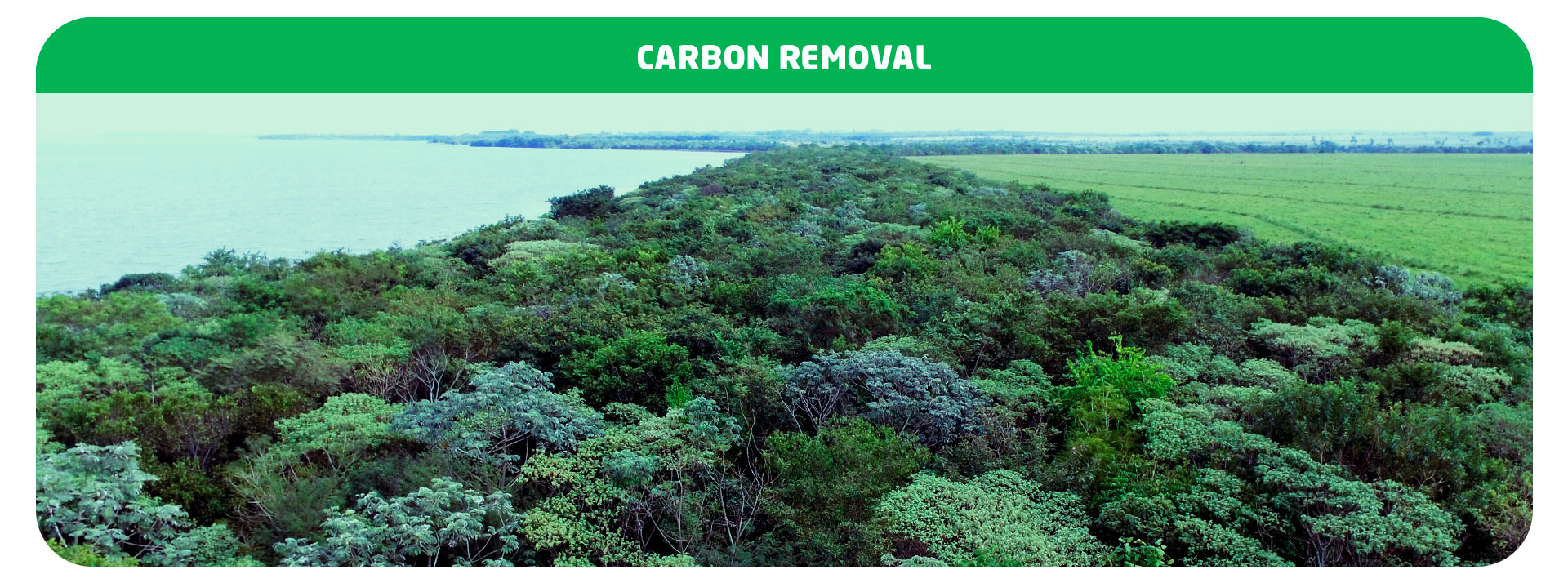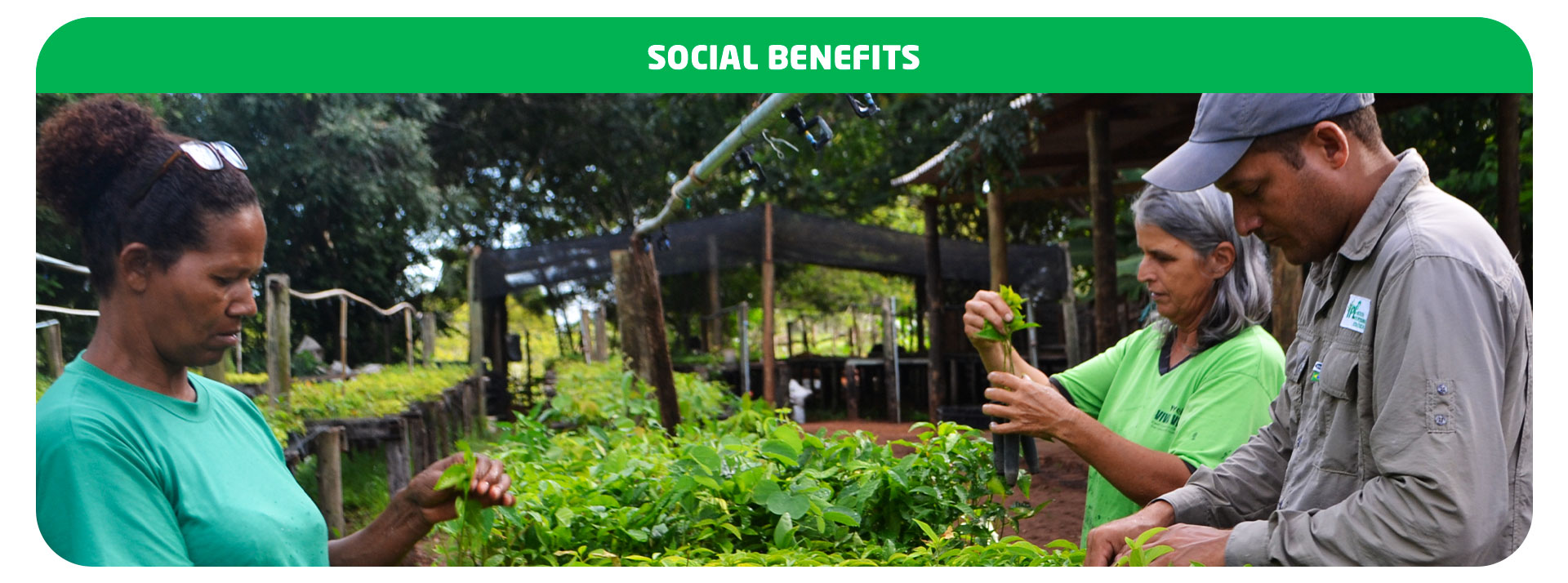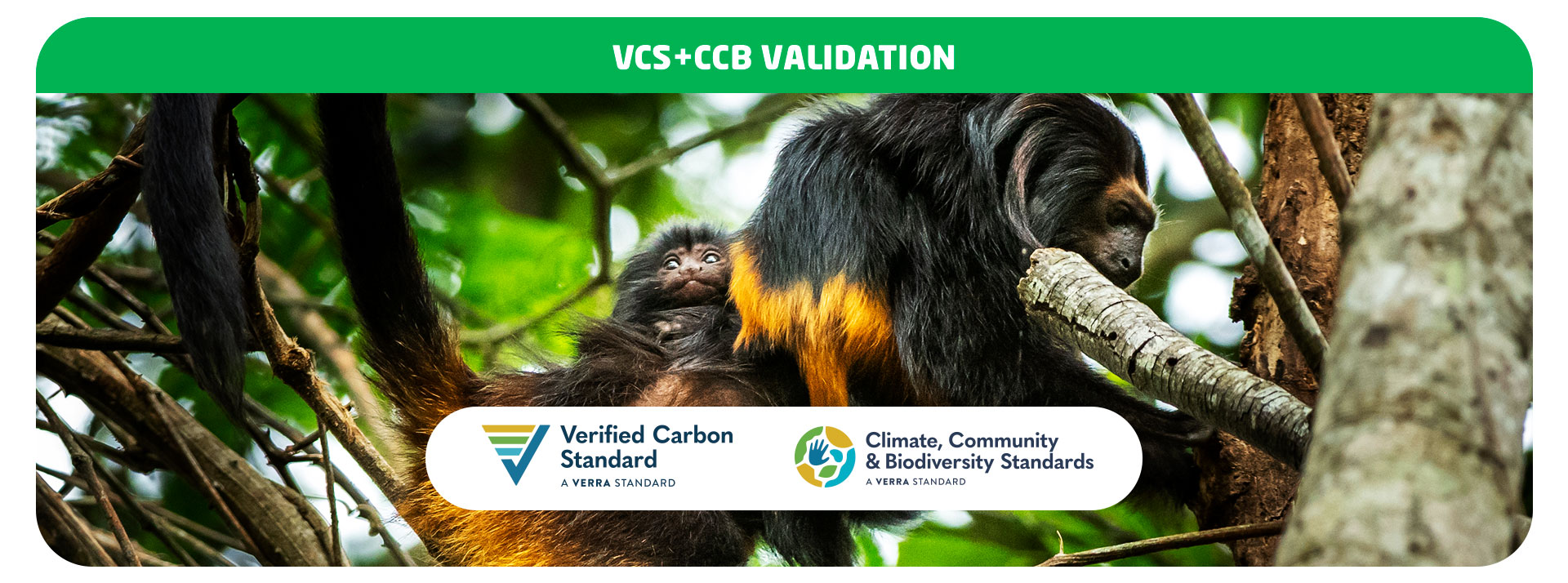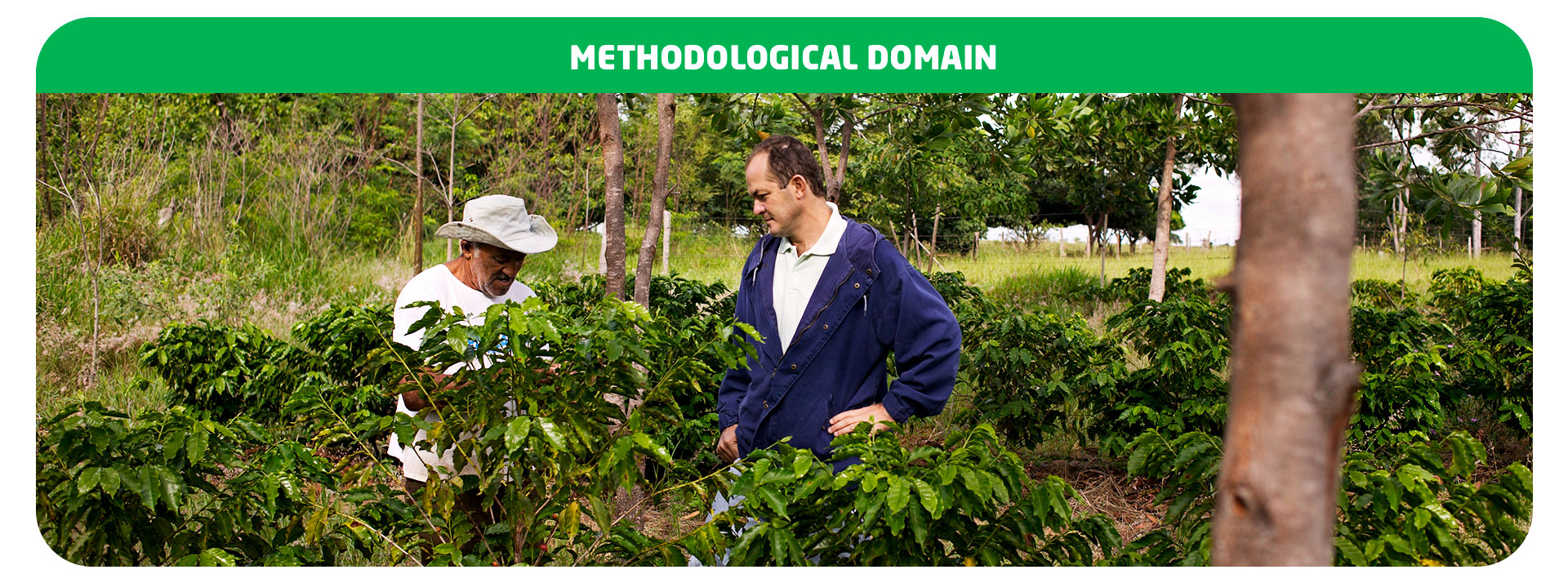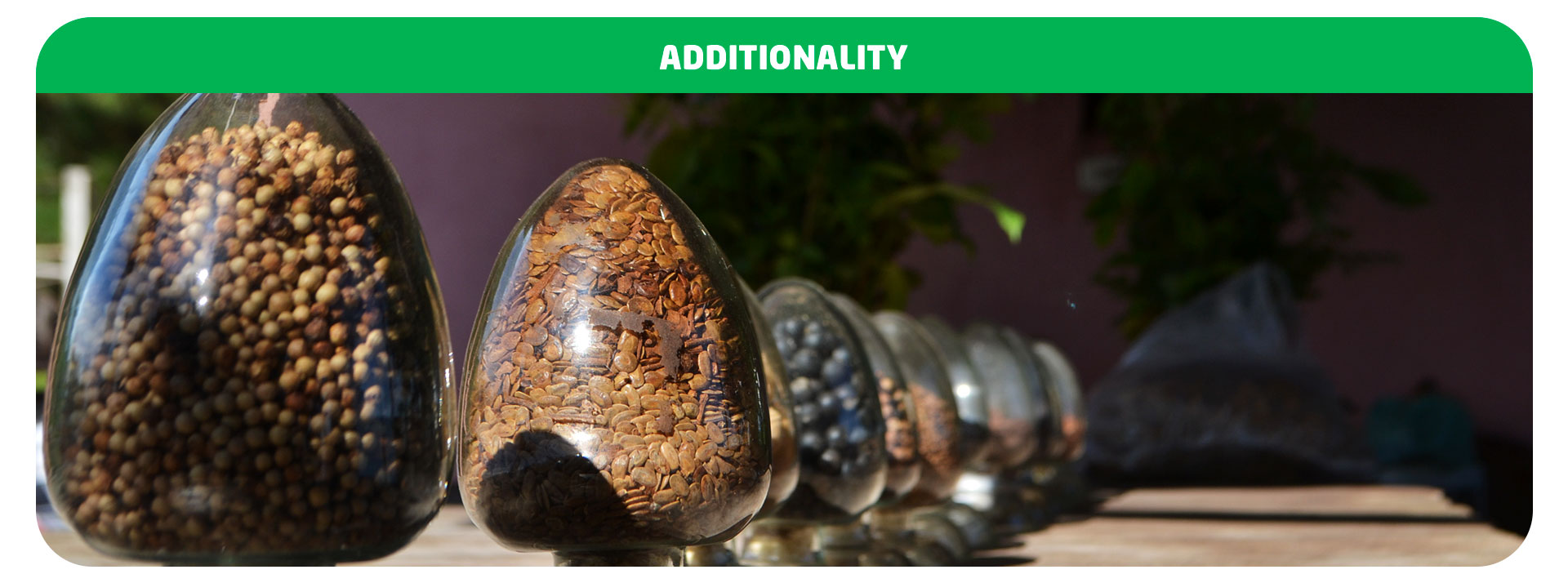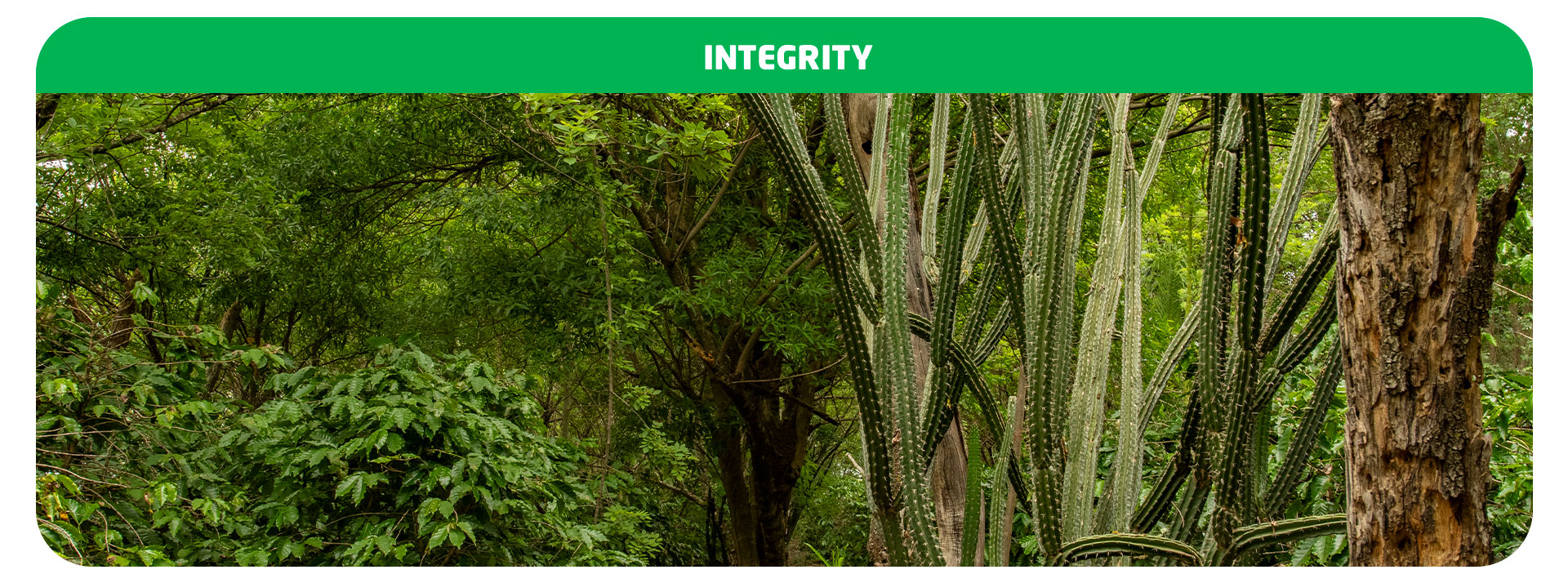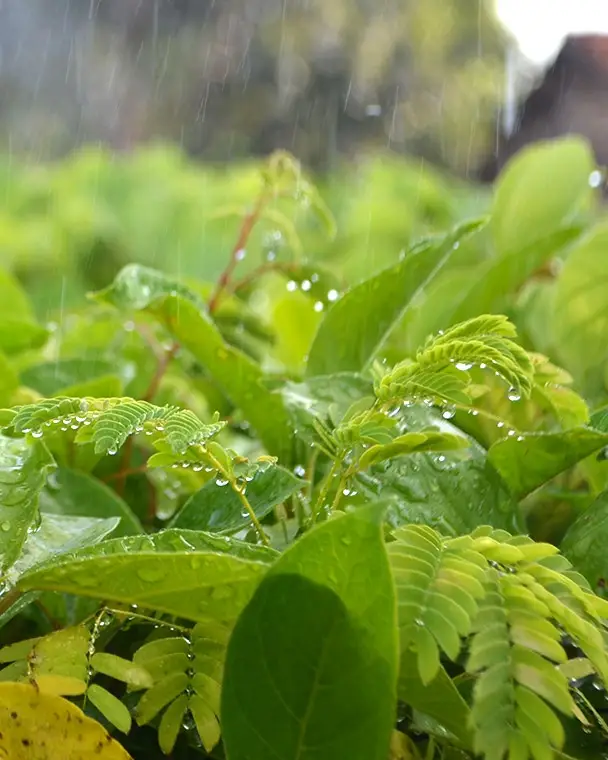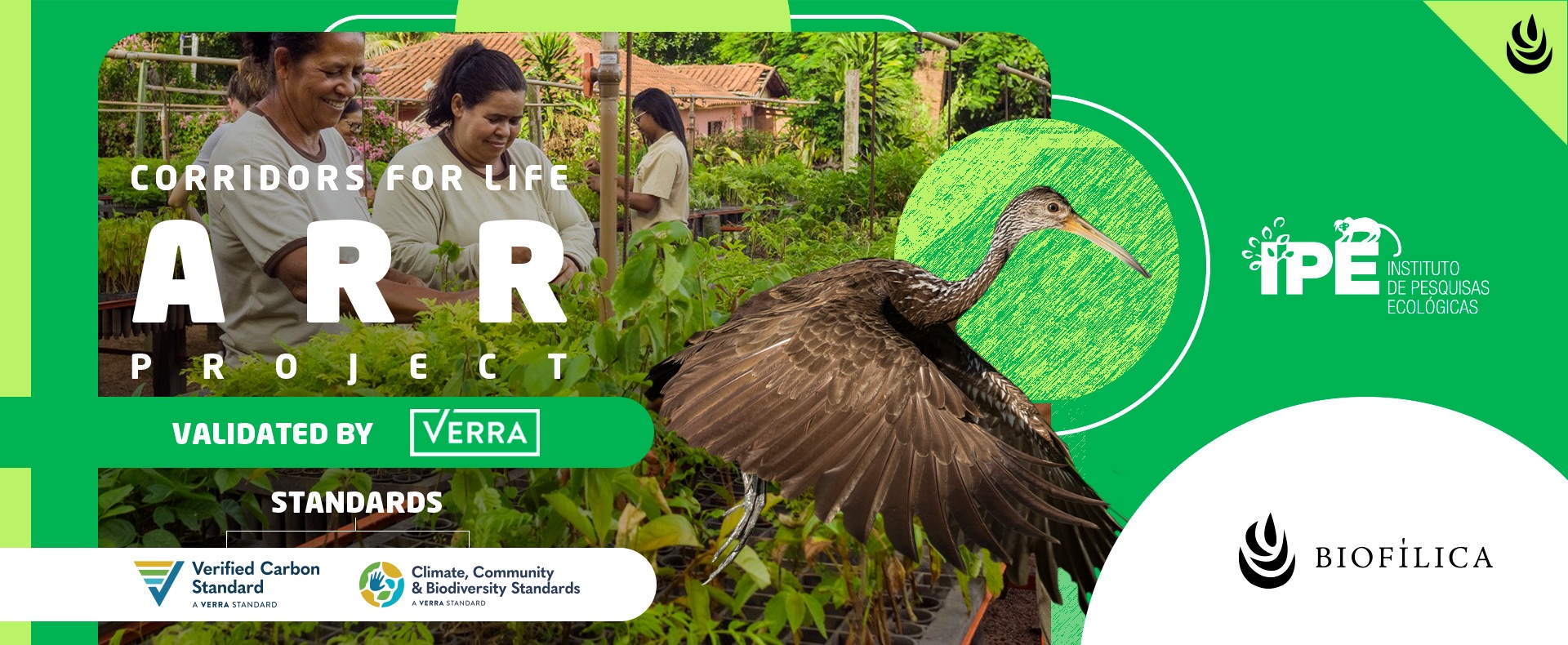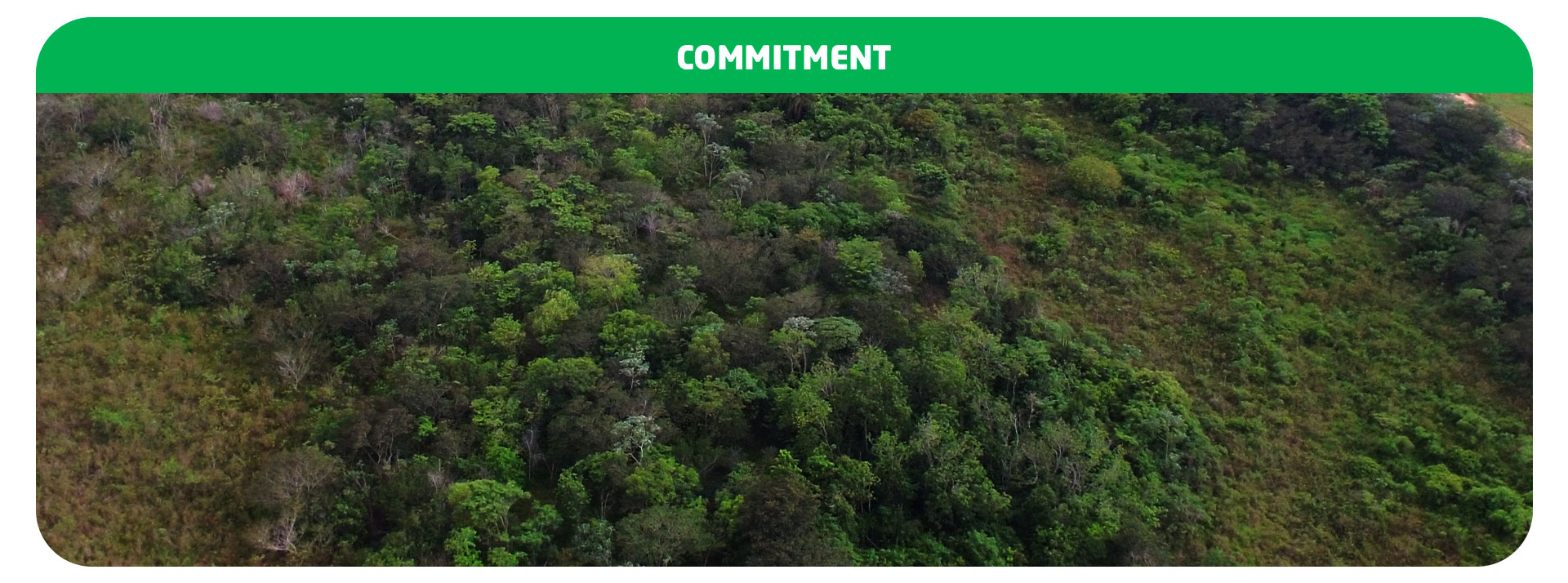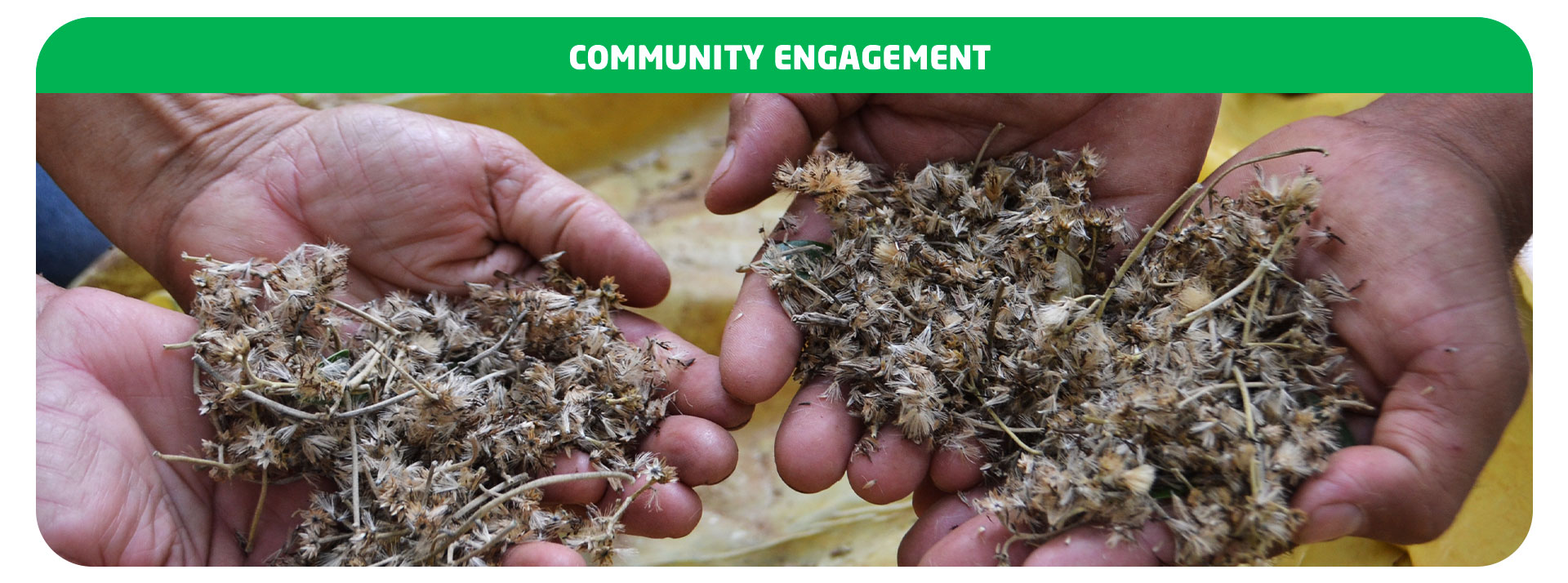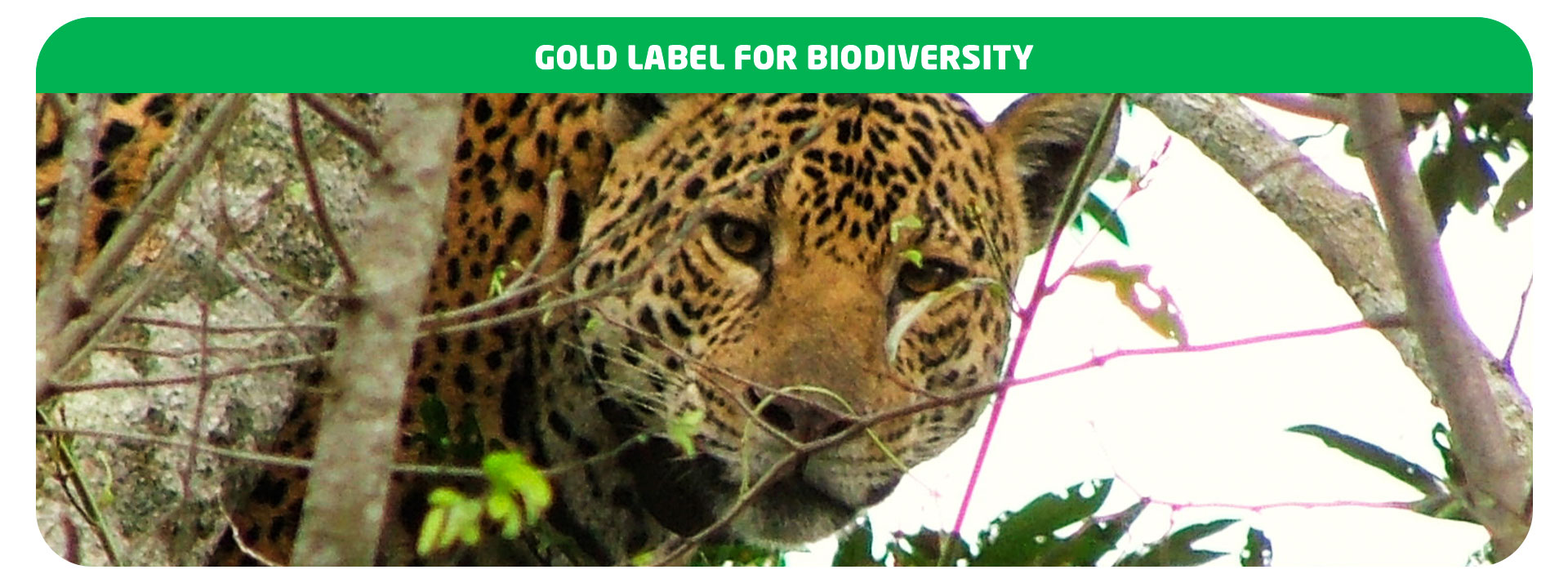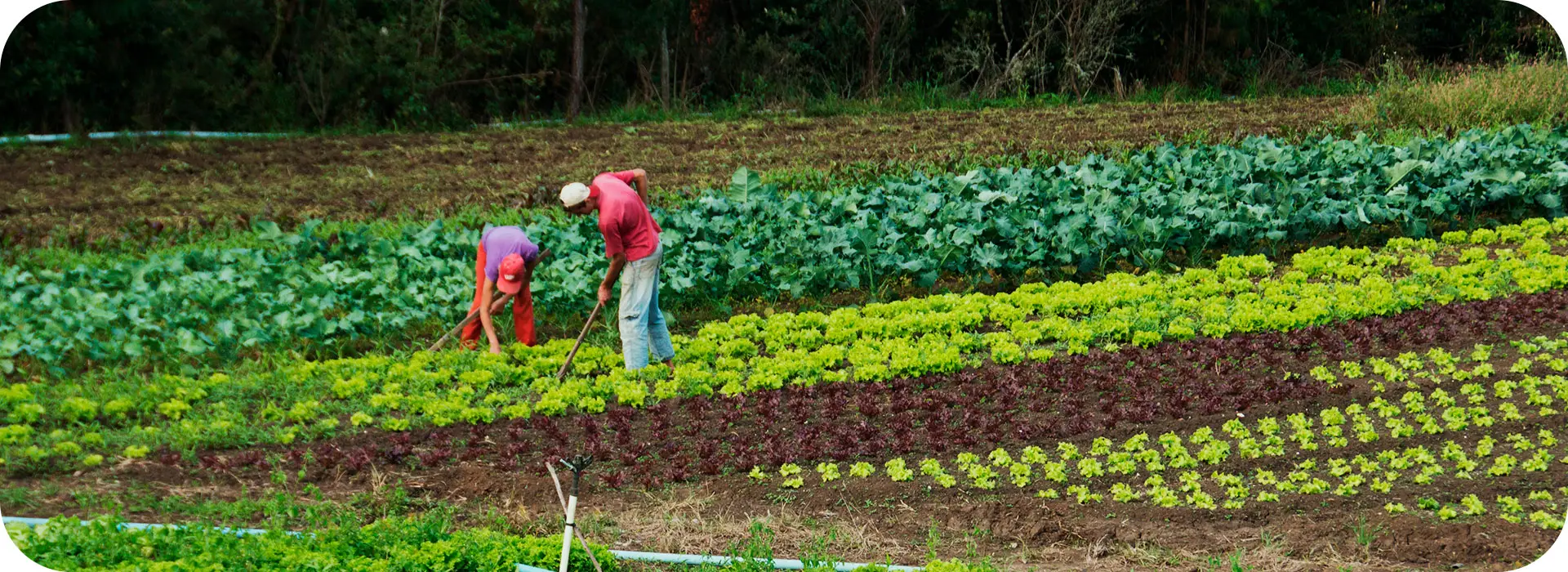by Caio Gallego, NBS Intelligence Manager and Marcos Siqueira-Neto, ALM Specialist (Agricultural Land Management)

Planting and livestock raising are among humanity’s oldest activities. Agriculture allowed the emergence of cities, productive diversification, and commercial activities. Altering landscapes and utilizing natural resources, agriculture is the greatest human endeavor on Earth.

to provide feed, fiber, and bioenergy for the 10 billion people estimated to occupy the planet in 2050, and without increasing impacts on natural ecosystems, the rise of agricultural production must be made possible not only by increasing productivity, but also through recovery of degraded areas.
In this 2nd technical positioning of Biofílica, we intend to address the importance of Brazilian agribusiness for socioeconomic development and its decisive role as a potential Nature-Based Solution. We also highlight the need to face the challenges of food and energy security against climate change, guaranteeing human health and well-being, while also helping to reduce environmental degradation.
The growth of Brazilian agriculture and its environmental impacts
The success of Brazilian agriculture was due to the presence of areas with favorable environmental conditions, abundant water, and a mechanized production, combined with technological innovations and tropicalized management practices, resulting in both increased productivity and the expansion of production frontiers, especially in the Amazon and the Cerrado.

Family agribusiness, which accounts for 77% of rural properties, is important for supplying the domestic market and controlling food prices. Corporate agribusiness accounts for around 50% of the export basket, with emphasis on the soybean and sugar-alcohol complexes, cereals, meat, and forestry products.
The productive rise of Brazilian agriculture began in the 1960s, a period known as the “Green Revolution”. Its modernization was based on scientific research and technological innovations, with emphasis on the creation of the Brazilian Agricultural Research Corporation (Embrapa). However, this growth brought deep changes to the production model and rural landscape, and consequences for traditional farmers, such as:
- Need to adapt to the new production model
- Need for credit to purchase equipment and inputs
- Need for technical assistance for technological transition
- Dependence on technology and inputs external to the properties.
Which also reflected in Brazilian territorial planning, such as:
- Unemployment in the countryside
- Rural exodus
- Increase in large estates
- Migratory movements
- Territorial occupation and the need for infrastructure.
As for the environment, the biggest impacts caused by the growth of the agricultural sector are related to two factors:
- intensive change in land use, which is one of the main vectors responsible for deforestation, and,
- after conversion, degradation of cultivated areas and pastures, caused by inadequate management practices or lack thereof.
These factors, added to the burning of plant residues, flooded rice production, the excessive use of fertilizers (especially nitrogen) and agrochemicals, in addition to enteric fermentation and the decomposition of animal waste are responsible for environmental degradation and increased greenhouse gas emissions (GHG), worsening climate change, of which feed back into impacts on production, such as changes in territorial zoning and agricultural suitability, increased desertification risk and extreme weather events.
Regulatory actions for sustainable development in Brazilian agriculture

Historically, Brazilian agricultural policies have encouraged commodity production and deforestation focused exclusively on increasing production. However, more recently, international pressure, markets and civil society have been demanding that various sectors, including agribusiness, establish clear goals and implement effective actions to reduce environmental degradation, mitigate climate change, biodiversity losses, eradicate work analogous to slavery, and promote fair labor relations.
In addition to changing legislation to protect the environment, voluntary initiatives seek to reconcile environmental preservation and economic development to encourage responsible agricultural production, for example, the ‘Soy Moratorium‘. This initiative marks the companies’ commitment not to sell soy from deforested areas of the Legal Amazon. In 2020, the ‘Brazil Climate, Forests, and Agriculture Coalition‘ brought together representatives from agribusiness and other entities, and presented six measures to quickly reduce illegal deforestation in the Amazon, these being:
- Intensify supervision
- Suspend the CAR for areas in public forests
- Designate areas for protection and sustainable use
- Grant financing under socio-environmental criteria
- Provide transparency in vegetation suppression authorization data
- Suspend land regularization processes for properties with deforestation found after July 2008.
Recently, the European Union published Regulation 2023/1115 – EU Deforestation-Free Regulation, imposing due diligence requirements on imports of agricultural products that may be associated with deforestation. In fact, this regulation worked as a catalyst to accelerate initiatives aimed at traceability of value chains, e.g., the ‘Soja na Linha’ initiative, which presents criteria for soy traceability. In livestock, the most recent initiative was the ‘Protocolo de Monitoramento Voluntário de Fornecedores de Gado no Cerrado‘, presenting the socio-environmental monitoring criteria for the purchase of products of bovine origin.
In this context, it becomes evident that the search for sustainable development in Brazilian agribusiness goes beyond responsible production, respect for land, labor, and environmental legislation. It is also influenced by regulatory frameworks, agreements, and guidelines on international markets, which has reputational consequences, including sanctions and embargoes. These factors affect both the demand and the prices of Brazilian agricultural products, directly impacting the income of rural producers.
Agriculture as a Nature-Based Solution
As defined by the United Nations Environment Programme (UNEP), Nature-Based Solutions (NBS) are actions to conserve, restore or sustainably use of natural or modified ecosystems, which address social, economic, and environmental challenges, while time that provides human well-being, quality ecosystem services, climate resilience, and benefits for biodiversity.
Based on this definition, the NBS goes beyond environmental issues, and points to the need to promote actions to support rural populations, especially smallholders, women, and traditional populations in vulnerable situations, through the provision of credit and financing services, market access, land ownership, health, social services, education, training, knowledge, and environmentally appropriate and accessible productive technologies.
For Brazilian agriculture to be seen as an NBS, it is necessary to encourage changes in the approach to the current production model. This transformation must occur both on rural properties and in productive activities. This will only be possible through the involvement of public authorities, international organizations, universities, private sector, and civil society, especially rural producers, and environmentalists.
Changes to the production model initially occur in the administrative and financial management of rural properties and extends to its productive activities. Best management practices with a NBS bias operate in synergy with natural processes, enhancing ecosystem services. In addition to the benefits for production, improved soil health and the productive environment, these practices effectively promote the recovery of degraded, unproductive, or low-productivity areas. Some examples of best management practices are no-tillage, cover crops, crop rotation and diversification, rotational pasture management, agroforestry, among others.
Adoption of best management practices also guarantees a more resilient agricultural environment, both to financial and environmental risks, helping producers to adapt productive activity to increasingly varied climatic conditions, as well as directly contributing to the mitigation of climate change, through sequestration carbon in soil and vegetation and reducing GHG emissions into the atmosphere.
In this sense, the necessary actions for the transition from current production models to the sustainable development of Brazilian agriculture must occur through the adoption of best management practices with a NBS bias that provide i) socioeconomic benefits, such as increased productivity and agricultural profitability, with improved living conditions in rural communities and new sources of income; ii) adaptation and resilience of productive activities to climate risks, guaranteeing food and energy security and, iii) the reduction and removal of GHG emissions.
Challenges and Perspectives
If, on the one hand, the sustainable development of agriculture is a potential SNB and can leverage the global sustainable development, on the other hand, given the size of the country, Brazilian agriculture is marked by the heterogeneity of production models that differ in terms of scale, production systems, use of production factors and inputs, and presents different technical and technological levels.

In most cases, this discrepancy is related to regional diversity and the knowledge of rural producers, as well as their different capabilities to make investments in the property and in its productive activities. In general, the barriers that prevent the transition from the current production model to a sustainable approach in agriculture are related to:
- producers’ resistance to adopting new models of property management and their productive activity (cultural barrier)
- lack of knowledge of the impacts of the exhaustion of natural resources, loss of quality of ecosystem services and climate risks on production (institutional barrier)
- lack of capacity and/or financial strategy to make improvements in productive activity (financial barrier)
- lack of technical assistance and qualified labor force to implement sustainable production (technical barrier)
Facing these challenges reinforces the synergy between agriculture and NBS through meticulous engagement of rural producers with the sustainable development of production. Thus, providing rural producers with knowledge, training, and technical assistance to adopt best management practices in the property and productive activity, demonstrating their benefits in productivity and profitability.
It is known that to make changes in management practices, it normally requires investments in equipment, infrastructure, inputs, and labor. Therefore, rural producers need access to credit lines with sustainability criteria that can be public (RenovAgro and Fundo Clima), private (green bonds) or mixed (blended financial), in addition to other financial incentives such as payments for environmental services and the carbon market.
Currently, in addition to the potential benefits to society and the environment, the adoption of best management practices with a NBS bias also makes it possible to implement projects to generate carbon credits, which can be certified in the Voluntary Carbon Market (VCM). The entry of the agricultural sector into the carbon market represents yet another paradigm shifts in history, directing real financial incentives towards the development of the sector towards sustainable production.

In this way, Brazilian agriculture can take a leading role in leveraging the Sustainable Development Goals, as it guarantees food security and improved nutrition (SDG2), becomes the largest supplier of biofuels, influencing the global energy matrix (SDG7), boosts the agro-industrial chain and responsible consumption (SDG 12), contributes to the empowerment of small farmers and women (SDG5), and contributes to the poverty eradication (SDG1). Furthermore, the sustainable intensification of agricultural production has a direct effect on forest conservation, reducing pressure on deforestation and mitigating climate change (SDG13).
Brazilian agriculture has a lot to gain by aligning itself with the principles of Nature-Based Solutions. However, for this to happen, it is essential to create, encourage and disseminate export policies, credits, and socio-environmental incentives, as well as markets for carbon credits, low carbon/net zero products, and fair trade. At the same time, agribusiness, both family and business, needs to adapt, transform, and commit to continuous improvement in the management of rural properties and their productive activities. These actions must aim to increase productivity, productive diversification, and financial benefits, advancing the sustainable development agenda, reducing environmental depletion, and increasing resilience to climate risk.

For more:
Denny, D.M.T., Cerri, C.E.P., Cherubin, M.R., & Burnquist, H.L. (2023).
Carbon Farming: Nature-Based Solutions in Brazil.
